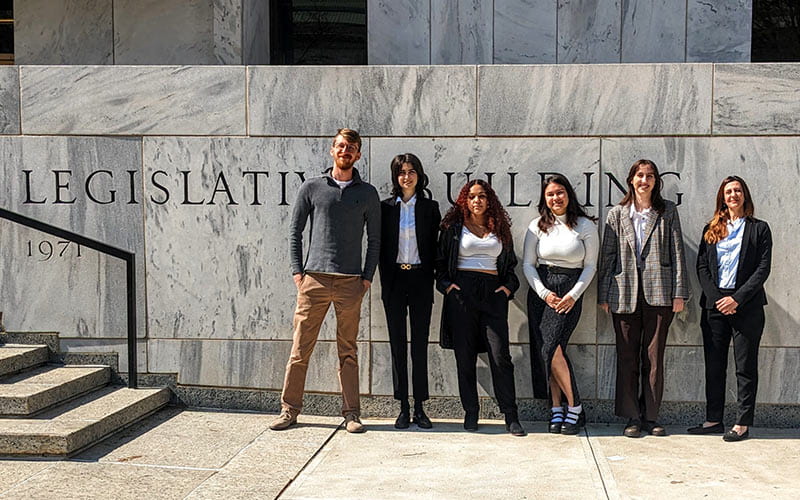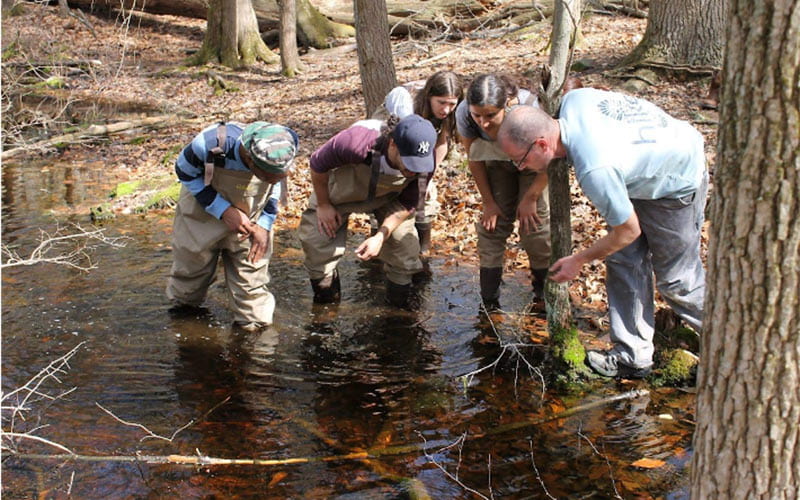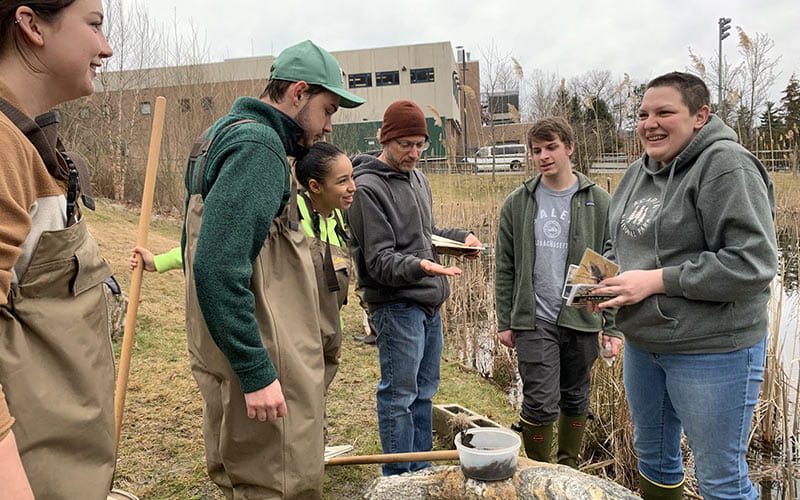Animal Policy Project Sends Students to NY State Capitol
This spring, students in the Animal Advocacy Clinic, a course housed in the Animal Policy Project led by Professor of Environmental Studies Michelle Land, JD, studied animal rights issues currently facing New York State. One group studied wildlife killing contests, unregulated hunting competitions designed to kill large numbers of a certain species—an issue that Assemblymember and Chair of the Environmental Assembly Deborah Glick had proposed a bill to ban. The students in the course educated their peers and the surrounding community on the issue, collected 525 petition signatures in support of the ban, and took a trip to Albany to meet with legislators to present their research on the topic and lobby for passage of the bill.

Students involved in the Animal Policy Project visited the state capitol in Albany to meet with legislators and lobby for the passage of a bill to ban wildlife killing contests.
Advancing Conservation at the Local Level

As part of Bioblitz, students explored the Pleasantville campus to identify as many species of flora and fauna as possible.
As an alternative to a standard research capstone, Clinical Associate Professor Michael Rubbo, PhD, developed a research practicum course where students work as a group to address an environmental issue. The program launched in spring 2022 with a partnership with Ridgefield, Connecticut, to assist in their town-wide Natural Resource Inventory (NRI). Students developed the proposal for completing the work and then conducted biodiversity studies including mammal and vernal pool surveys. Students presented their findings to the public at the Ridgefield Public Library. Ridgefield will use the data from this study in their NRI and has contracted with Pace students to create a story map to display findings.
In fall 2022, Rubbo’s research practicum course partnered with Riverkeeper, Inc., to assist with an assessment of the Peekskill Hollow Brook, which provides the water supply for Peekskill and a supplemental supply for several neighboring communities. Students conducted an assessment of the physical and chemical characteristics of the stream, working in the field to collect data and samples. Students presented findings of their water quality monitoring project to officials from the City of Peekskill and Riverkeeper staff. This research will be used to identify threats to the river and ultimately develop mitigation to conserve this resource.
Week-Long Bioblitz Explores Biodiversity

Environmental Studies and Science students in Pleasantville hosted students from the New York City campus for Bioblitz.
Students in Clinical Associate Professor Michael Rubbo’s (PhD) Environmental Education and Interpretation course planned and hosted a week-long bioblitz on Pace’s Pleasantville campus for their final project. A bioblitz is a fun and exciting way to explore the biodiversity of campus by identifying and recording as many species of flora and fauna as possible. Students ran activities for the Pace community including fishing in Choate Pond, sampling macroinvertebrates in the Nature Center pond, birdwatching, and plant, insect, and fungi identification walks. They also hosted environmental students from Pace’s New York City campus to participate in the event. All observations were tracked in iNaturalist, an app that allows citizen scientists to contribute to local biodiversity studies.

